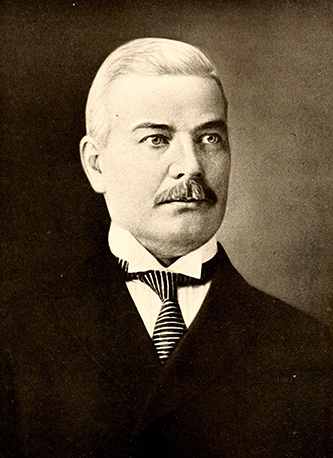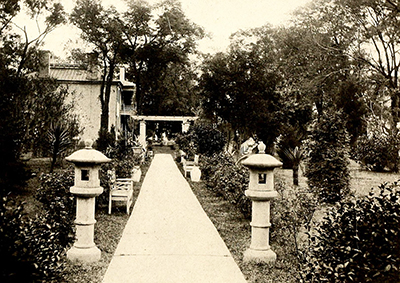5 Dec. 1857–15 May 1928

Richard Dillard, physician and local historian, was born at Farmers Delight, his father's plantation in Nansemond County, Va. The son of Dr. Richard and Mary Louisa Beverly Cross Dillard, he was educated at The University of North Carolina where he was a student from 1875 to 1877. He then studied medicine at the University of Virginia and was graduated from the Jefferson Medical College of Philadelphia in 1879. Rutherford College in 1901 awarded him an honorary master of arts degree. He established a practice in Edenton, N.C., which continued for the remainder of his life; in 1880 he was named assistant surgeon of the U.S. Public Health Service in Edenton.
Dillard became interested in local history and during his leisure time engaged in research and writing. He contributed to various magazines and journals, including the Magazine of American History and the North Carolina Booklet, and published a number of pamphlets and booklets dealing primarily with the old Albemarle region of North Carolina. Among his earliest publications was The Historic Tea-Party of Edenton, October 25th, 1774, which appeared first in 1898 and was reprinted several times. Some Legends of Eastern North Carolina appeared in 1926. Other publications dealt with traditions and lore, Indians, reminiscences, and fiction; he also wrote "prose poems" and pieces of "poetic beauty." Governor Charles B. Aycock named him to the first North Carolina Historical Commission, and he was an active member of the Roanoke Colony Memorial Association. He held office in the North Carolina Medical Society and in the North Carolina Folklore Society. A knowledgeable botanist, he was fond of flowers and gardening and contributed to House and Garden Magazine.

Dillard, a Democrat and an Episcopalian, never married; he was survived by a number of nieces and nephews and his home in Edenton, Beverly Hall, continues to be occupied by a relative.